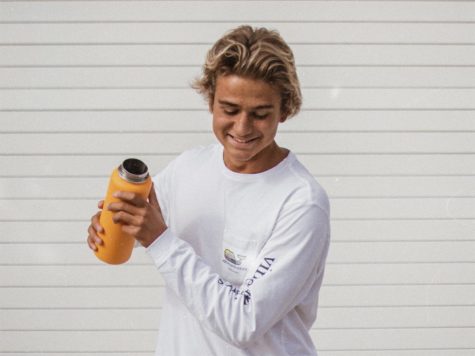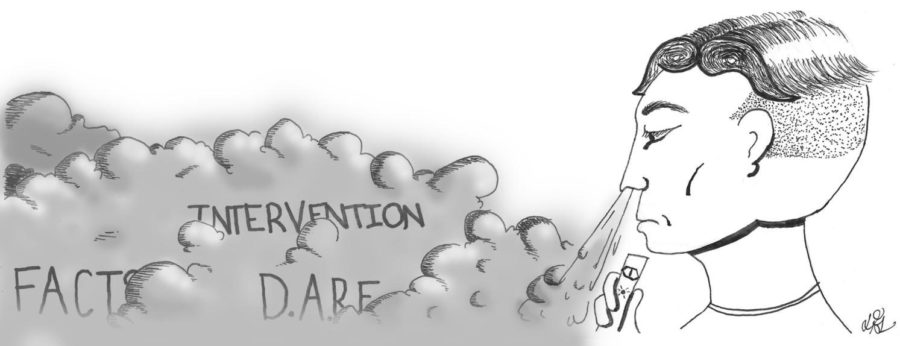Staff Editorial: Proposing a Solution to the Vape Epidemic
JUUL, Suorin, SMOK: if you are one of the millions of high schoolers involved in the vaping epidemic, you have heard of these brands. According to the Food and Drug Administration, 3.6 million middle and high school students currently use e-cigarettes, and this number will only grow unless effective measures are implemented.
Although the raging prevalence of vaping may be challenging to counter, a two-pronged approach must be taken to prevent future users from getting addicted and remedy the issue for existing users. Not only is it critical for students to be informed of the implications of vaping in order to prevent this epidemic from spreading, but it is also important for those already addicted or using the drug to have a safe space to seek help without fear of being punished.
A notable danger of the epidemic is the large number of users who are uneducated about what they are consuming. According to the National Institute of Health, 66 percent of teens believe that their e-cigarette only contains flavoring. Nicotine flavors only constitute 25 percent of the market, and there are chemicals that go into making the flavorings that are highly correlated with respiratory diseases and are toxic to the body. The reality is that vaping is extremely dangerous for the body and can cause medical issues in the future.
Students need to be more informed about negative impacts as well as the true reality of vaping. The FDA’s current solution is to expand its anti-tobacco campaign, notably called “The Real Cost,” to include anti-e-cigarette awareness by placing posters in high schools and creating digital ads.
Our proposal is to create even more impact through the use of social media advertisements, as well as the endorsement of the campaign by celebrities and influencers with a large online presence and a target audience of middle and high school students. Similar to how celebrities endorsed exercising the right to vote during the 2018 midterm elections, a similar approach to anti-vaping may help ease the growing problems. Taylor Swift’s advocacy for voter turnout on social media led to the registration of 250,00 new young voters in Tennessee, and a similar impact can be expected for anti-vaping movements.
“I think vaping is driven a lot by the temptations that social media presents,” junior Dave* said. “People post about it all over their Snapchats and VSCOs, and students who don’t vape naturally want that same social clout.”
In order to stop the epidemic, we must also focus on those who are already addicted to e-cigarettes. According to a survey from Algonquin High in Northborough, Massachusetts, many students vape in private settings such as their cars or restrooms, and this is typically because students fear being punished by their parents. For junior Eliza*, who vapes and has friends who vape as well, it is hard to ask for help.
“Kids usually know their parents are going to flip,” Eliza* said. “If they were to tell their parents, they would be grounded instead of receiving adequate help and reassurance to solve their vaping problem.”
A program run by the FDA dedicated to helping those who vape would give an opportunity to be more open about their addictions and would, more specifically, encourage students to speak with their counselors about issues they may be having with drug abuse. By uniting parents and students through intervention meetings and rehabilitation conferences, we would be able to destigmatize the difficult step of asking for help and greatly bring down the increasing rates of vaping.
With the number of vape users on the rise every day, it is imperative to combat the problem sooner rather than later.
Modifying our social media campaigns to educate students effectively and providing practical methods of escaping e-cigarette addiction are crucial to reversing the devastating trend of teenage vaping around the country.
*Names of students have been changed to maintain anonymity.
Your donation will support the student journalists of Portola High School. Your contribution will allow us to purchase equipment and cover our annual website hosting costs.

Dylan Gates is the Media Director of the 2018-2019 Portola Pilot staff. He is in his Junior year at Portola and has been working with the Pilot since the...




